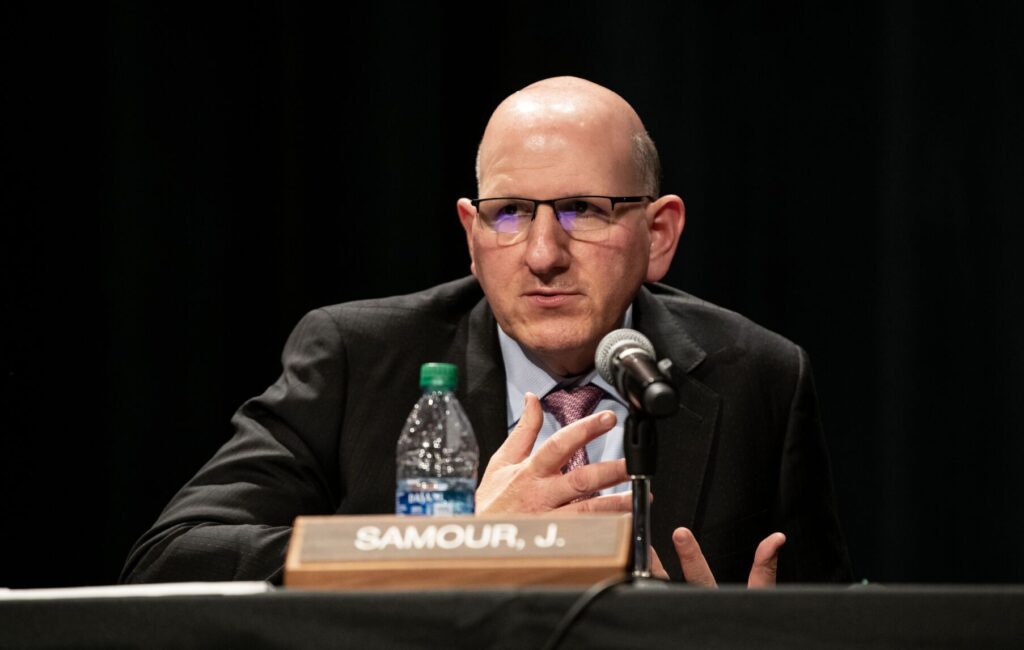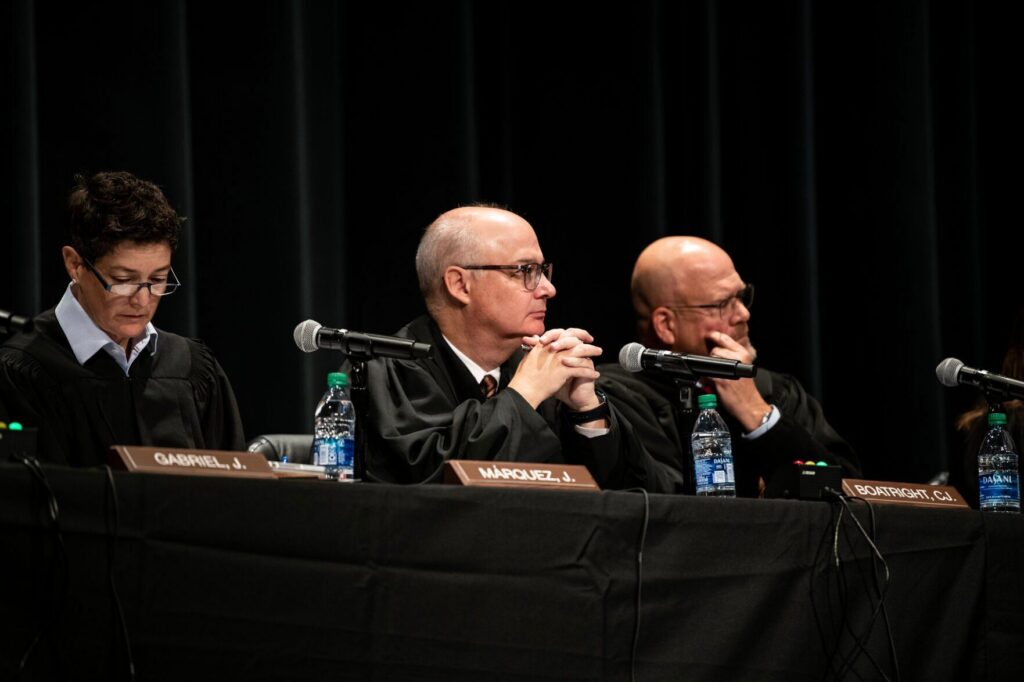Appeals court overturns $4 million jury award for elderly woman subject to Denver SWAT search
Colorado’s second-highest court last week overturned a jury’s roughly $4 million award to an elderly Denver woman who was subject to a SWAT raid on her home after police believed, incorrectly, a stolen iPhone would be found inside.
In ordering a new civil trial, a three-judge Court of Appeals panel imposed a new burden on plaintiffs seeking to prove police conducted an unlawful search under the Colorado Constitution. It is not enough, explained Judge Ted C. Tow III, that police mistakenly or negligently put faulty information in a search warrant, but they had to do so intentionally or recklessly.
Proof of a “deprivation of a constitutional right in this context requires a showing that there were misstatements in or omissions from the affidavit that were intentional or made with reckless disregard for the truth, without which the affidavit would not establish probable cause,” Tow wrote in the May 1 opinion.
The panel’s decision about the search warrant used against plaintiff Ruby Johnson addressed an unanswered question about the landmark police accountability law Colorado legislators enacted in 2020.
Senate Bill 217 became law in the wake of protests that erupted over the killing of George Floyd at the hands of Minneapolis police. Although federal law has long enabled plaintiffs to sue state officials for violations of their rights under the U.S. Constitution, SB 217 created such a mechanism for violations of rights under the state constitution. Like its federal counterpart, Colorado’s constitution contains a prohibition against unreasonable searches and seizures.
A key distinction between SB 217 and federal law involved the treatment of qualified immunity, which is a judicially created doctrine shielding government employees from lawsuits unless they violate a person’s clear legal rights. For federal plaintiffs, they generally must point to a prior court decision finding a constitutional violation under circumstances very similar to theirs — the idea being that law enforcement officers and other officials must be on notice their conduct was unlawful.
SB 217, in contrast, provides officer defendants no qualified immunity.
In the case before the Court of Appeals, Denver police received a report in January 2022 that someone stole a truck containing firearms, cash and an iPhone from a downtown hotel. The owner used his find-my-phone app and the phone identified itself as being at a house in the Montbello neighborhood. The radius identified by the app, however, encompassed several homes on multiple blocks.
The owner drove to the house — Johnson’s — and did not see his truck. He saw a garage where it was possible to store the truck. Denver police also came to look at the home, but saw only Johnson inside with no suspicious activity.
Detective Gary Staab and Sgt. Gregory Buschy had hesitations about applying for a search warrant based on the find-my-phone app. Staab spoke with a prosecutor, who told him she had experience using the app and believed it was reliable. Buschy also called the owner of the phone, who vouched for the app’s ability to locate a phone “within feet.”
Staab then prepared a statement in support of searching Johnson’s house for the stolen items, which the district attorney’s office made changes to and approved. Buschy signed off on it and a county court judge issued the warrant after finding probable cause.
Because stolen firearms were at issue, a SWAT team went to Johnson’s house. It removed her from her home and searched it, damaging her house and locating no stolen items. Johnson suffered emotional and physical effects from the experience, eventually selling the house.
Johnson sued under SB 217, alleging Staab and Buschy were liable for an unlawful search by including false statements in their search warrant application and omitting key facts.
A jury found in Johnson’s favor and its award ended up at roughly $4 million. The defendants argued jurors were never instructed to look at whether the problematic statements were reckless or intentionally false, as opposed to merely mistakes. District Court Judge Stephanie L. Scoville responded that, given the “lack of authorities” on SB 217 to date, it was proper for the defendants to be liable for negligent or mistaken statements that undermine probable cause.
During oral arguments in March, the Court of Appeals panel discussed the relationship between Johnson’s claim under the Colorado Constitution and the well-established process for federal claims, as well as the similarities between an unreasonable search for criminal cases compared to civil suits.
Johnson suggested the officers’ argument for intent or recklessness “essentially backdoors immunity into it, when the legislature explicitly said there is no immunity,” observed Tow.
On the other hand, he was concerned about what might happen if plaintiffs could sue for constitutional violations over inadvertent mistakes in an investigation.
“If that’s the rule, don’t we run a risk that we no longer have people willing to be first responders?” Tow said to Johnson’s lawyer. “If there’s one mistake in there, there’s liability. Is that your proposition?”
Ultimately, the Court of Appeals panel believed Colorado lawmakers did not enact SB 217 to eliminate the existing requirement for intent or recklessness in criminal cases to prove a search warrant was unconstitutionally lacking in probable cause. Tow maintained the panel’s decision was not sneakily creating a form of qualified immunity the legislature had rejected.
“In other words, a warrant may be supported by probable cause even if the supporting affidavit contains negligent or mistaken misstatements,” he concluded. “And if such a warrant is supported by probable cause, the search pursuant to that warrant does not violate” Colorado’s constitution.
The panel ordered a new trial, where jurors would be instructed to look at any recklessly or intentionally false statements in support of the search warrant.
The case is Johnson v. Staab et al.













